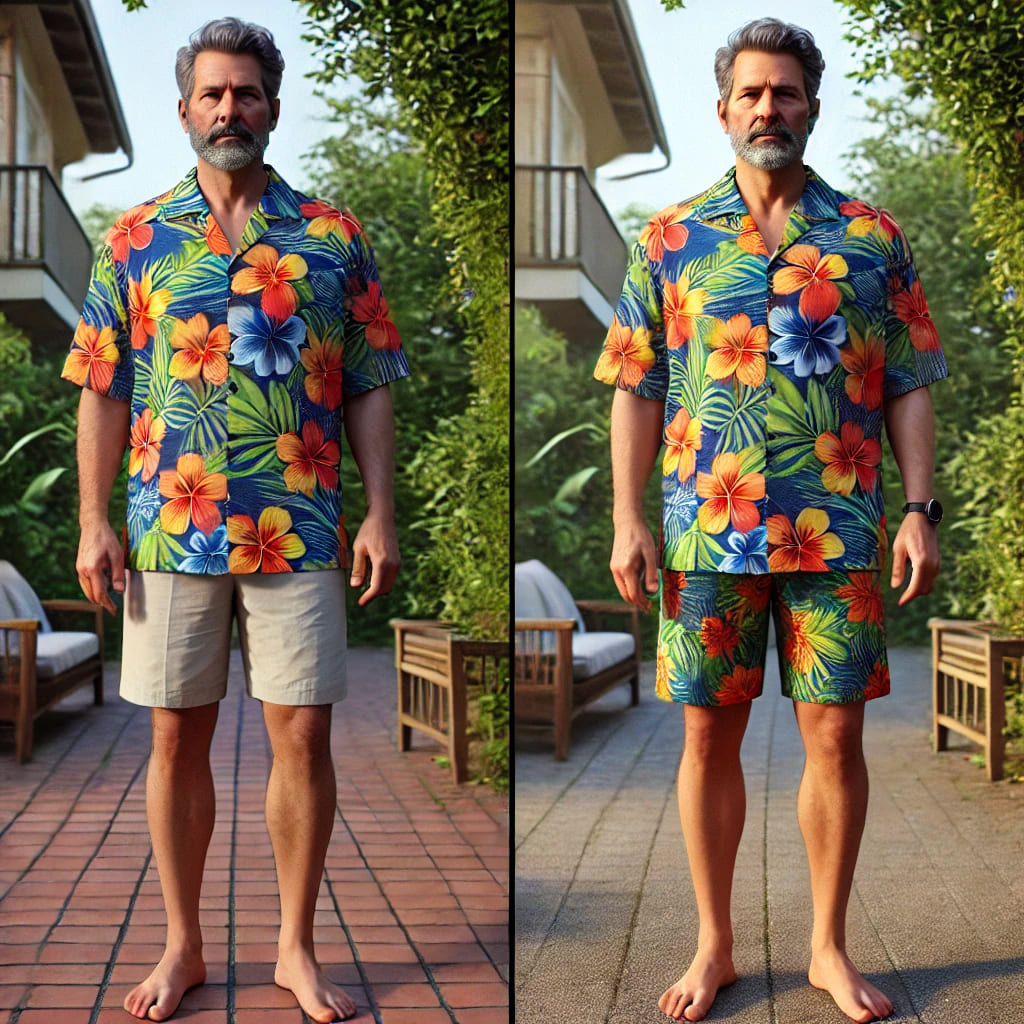Hawaiian shirts with their vibrant colors and bold patterns, have become synonymous with vacations, summer parties, and a laid-back lifestyle. However, beneath their cheerful exterior lies a complex question: Are Hawaiian shirts offensive? This article dives into the historical origins, cultural significance, and contemporary debates surrounding Hawaiian shirts to provide a thorough understanding of this iconic garment and its implications in today’s cultural discourse.
Historical Background and Cultural Significance

Origin of Hawaiian Shirts
Hawaiian shirts, or Aloha shirts as they are traditionally known, originated in the early 1930s in Hawaii. They were first crafted from leftover kimono fabric by local Japanese women. The shirts combined the Japanese art of tailoring with tropical motifs inspired by the natural beauty of Hawaii. This fusion of Eastern and Western influences marked the birth of a unique garment that reflected Hawaii’s multicultural heritage.
Cultural Integration
Over the decades, Hawaiian shirts grew from a local commodity to a global phenomenon, symbolizing relaxation and paradise. However, their rise was not just a fashion statement but also a cultural emblem of Hawaii’s hospitality and diverse society. The shirts were originally worn by all ethnic groups in the islands and later adopted by tourists as a souvenir embodying the spirit of aloha—love, peace, and compassion.
Understanding Cultural Appropriation

Definition of Cultural Appropriation vs. Cultural Appreciation
Cultural appropriation occurs when elements of a minority culture are adopted by members of a dominant culture without permission and often in a context that strips away their original meaning. In contrast, cultural appreciation involves understanding, respecting, and honoring the significance of these cultural elements. This distinction is crucial when evaluating the cultural dynamics of Hawaiian shirts.
Hawaiian Shirts in the Context of Appropriation
Critics argue that the commercialization of Hawaiian shirts can veer into cultural appropriation when non-Hawaiians wear them without awareness of their cultural roots, especially in contexts that stereotype or trivialize Hawaiian culture. However, when worn with respect and knowledge of their history, Hawaiian shirts can be a form of cultural appreciation, celebrating the rich tapestry of Hawaiian heritage.
Modern Perspectives and Debate

Contemporary Usage
Today, Hawaiian shirts are featured in various fashion lines worldwide, from high-end designers to casual retail stores, often devoid of their cultural narrative. This global ubiquity raises questions about whether their use respects or dilutes the cultural essence they were meant to convey.
Points of Contention
The debate is polarized. Some view the wearing of Hawaiian shirts as an innocent appreciation of Hawaiian culture, while others see it as a superficial appropriation. The line between appreciation and appropriation can be thin and often depends on the intent and context in which these shirts are worn.
Ethical Considerations and Best Practices

Ethical Fashion
Consumers are increasingly seeking ethical fashion choices that respect cultural origins and ensure fair trade practices. Choosing to buy authentic Hawaiian shirts directly from local Hawaiian businesses supports the local economy and promotes cultural respect.
How to Wear Hawaiian Shirts Respectfully
Guidelines for wearing Hawaiian shirts respectfully include understanding their history, choosing patterns that genuinely reflect Hawaiian culture, and avoiding caricatures or costumes that reduce the garment to a stereotype.
FAQs

What is the significance of patterns in Hawaiian shirts?
The patterns often depict native Hawaiian plants, animals, and ocean scenes, symbolizing respect and reverence for nature.
How can one appreciate another culture’s symbols without appropriating them?
By learning about the culture, engaging with it meaningfully, and choosing to support authentic representations and creators.
Conclusion
So, are Hawaiian shirts offensive? The answer is not straightforward and varies with context, intent, and awareness. By wearing Hawaiian shirts with a deep appreciation for their cultural heritage and choosing authentic, respectfully portrayed designs, we can honor and celebrate the rich culture of Hawaii rather than diminish it.






